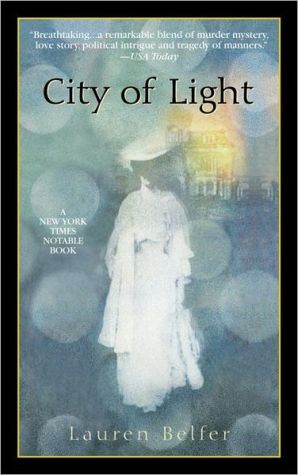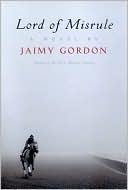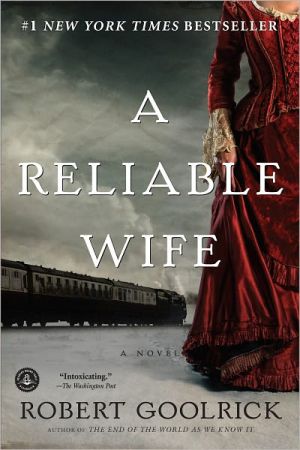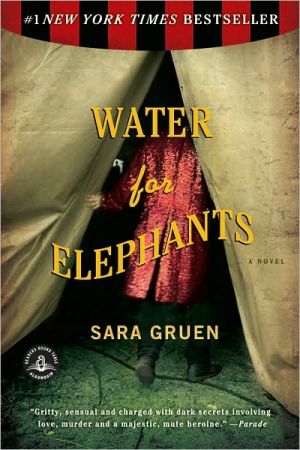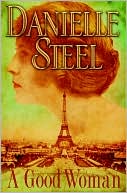City of Light
City of Light\ The year is 1901. Buffalo, New York, is poised for glory. With its booming industry and newly electrified streets, Buffalo is a model for the century just beginning.\ Louisa Barrett has made this dazzling city her home. Headmistress of Buffalo’s most prestigious school, Louisa is at ease in a world of men, protected by the titans of her city. But nothing prepares her for a startling discovery: evidence of a murder tied to the city’s cathedral-like power plant at nearby Niagara...
Search in google:
City of LightThe year is 1901. Buffalo, New York, is poised for glory. With its booming industry and newly electrified streets, Buffalo is a model for the century just beginning. Louisa Barrett has made this dazzling city her home. Headmistress of Buffalo’s most prestigious school, Louisa is at ease in a world of men, protected by the titans of her city. But nothing prepares her for a startling discovery: evidence of a murder tied to the city’s cathedral-like power plant at nearby Niagara Falls. This shocking crime—followed by another mysterious death—will ignite an explosive chain of events. For in this city of seething intrigue and dazzling progress, a battle rages among politicians, power brokers, and industrialists for control of Niagara. And one extraordinary woman in their midst must protect a dark secret that implicates them all… TimeThis book is part mystery and part historical melodrama, fluently mixing fact and fiction, with the sort of Victorian plot devices that gaurantee a straight-through, sleepless read. The novel is no Ragtime, but it's close-an operatic potboiler, fat with romance, politics and scandal.
On the first Monday in March 1901, in the early evening when the sound of sleigh bells filled the air, a student unexpectedly knocked at my door. I was accustomed to receiving visitors on Mondays before dinner, when my drawing room was transformed into a salon. Bankers and industrialists would stop by my comfortable stone house attached to the Macaulay School, knowing they would find professors and artists, editors and architects.\ In those days, Buffalo was flush in an era of extraordinary economic prosperity and civic optimism. The city had become the most important inland port in America because of its pivotal location at the eastern end of the Great Lakes. Indeed, at the turn of our century, Buffalo had taken its place among the great cities of the United States. Many of the visitors to my salon were from New York City or Chicago, men who came to Buffalo at the behest of our public-spirited business leaders to offer their best work to the city. These included architects Louis Sullivan and Stanford White; sculptors Augustus Saint-Gaudens and Daniel Chester French. Years ago I met architect Daniel Burnham and he invited himself for sherry with a man whose name I now forget, and came again on his next visit to Buffalo. Soon they all came, presenting their cards with a note: "At the suggestion of our mutual friend . . ." Then the local people of distinction, with such family names as Rumsey, Albright, and Scatcherd, sensing an opportunity, came calling too.\ They could do this only because I was considered unmarriageable. Because I was a kind of "wise virgin"--an Athena, if you will--these men granted me my freedom and I granted them theirs. Of course there were women at my salon--doctors, architects, artists. Those who had husbands came with them; those who did not came alone, or with the other women who were their life companions.\ I liked to think that my Monday evening salon was the only place in the city where men and women could mingle as equals. The married and marriageable women of the upper reaches of the town were hidden away, given little room for interests beyond clothes, children, entertaining, and a bit of work among the poor. They led a limited life, which filled me with sadness and which I tried at Macaulay to change. I educated the young women placed in my care--the daughters of power and wealth--to expect more. I liked to think that I'd trained a generation of subversives who took up their expected positions in society and then, day by day, bit by bit, fostered a revolution.\ In the past two years, the stream of visitors to my salon had become ever more fascinating and their concerns ever more urgent as they planned the design and construction of a world's fair called the Pan-American Exposition. Yes, Buffalo was to be an exposition city now, in the tradition of Philadelphia and Chicago. The Pan-American would celebrate the commercial links between North and South America as well as America's technological breakthroughs, particularly in the area of electricity, which was being developed at nearby Niagara Falls. Most important, the Pan-American's very existence symbolized and confirmed Buffalo's new, vital place in the nation.\ The exposition site was less than a mile from my home, and over eight million people from around the country and the world were expected to visit the fair during the coming summer. Debates about lighting, coloring, and schematic statuary took place before my fire, the gentlemen tapping their pipes against the mantel. Sometimes they called my gatherings a "saloon" instead of a salon, as if they were visiting the Wild West and I were Annie Oakley. I tried not to show them how much their teasing pleased me.\ But on this particular Monday evening in March, I sent my visitors away by seven. There was a wet snow falling and a chill dampness in the air that made me want to be alone in front of the fire. My guests grumbled halfheartedly, though some of them were privately grateful, no doubt, to return home; here on the shores of Lake Erie we respected the icy storms of early spring. And although they might not admit it, more than a few of my out-of-town visitors probably yearned to leave business behind and move on to a relaxing game of whist in the mahogany-paneled confines of the all-male Buffalo Club. Even so, exposition president John Milburn was chagrined to be forced to cut off his conversation with chief architect John Carrère. "You're sending us out to talk in the snow?" he queried in the hallway.\ "Absolutely," I replied. "You should walk the exposition grounds in the snow and evaluate your work right there--much better altogether." The men laughed as they gathered their coats and made their way out the door.\ After they were gone, I sat in my rocking chair, resting my head, luxuriating in the evening. Then in the quiet, I heard my favorite sound: sleigh bells jingling on harnesses as the horses trotted down Bidwell Parkway, sleigh gliders swishing through the snow. At this hour, bejeweled couples cloaked in fur against the cold were on their way to dinner parties; snowstorms were never permitted to interfere with the social swirl. Closing my eyes, I conjured a scene in my mind: a dining room with French doors and a coffered ceiling, a long table laid for twelve, freshly polished silver, candlelight throwing rainbows through the crystal. I was forever apart from that life, observing it, never living it. Nonetheless I pictured myself reclining on a sleigh, the harness bells dancing, a bison skin pulled around me for warmth as snowflakes touched my face and I was carried to dinner at the estate of John J. Albright or Dexter P. Rumsey.\ A knock at the front door intruded on my thoughts. Not wanting to be rude to latecomers, I rose and went into the hall. My Polish housekeeper, Katarzyna, had already opened the door, but she had not welcomed the visitor.\ "People gone now. Visiting time finished," she said with a cut of her hand, as if to shoo the caller away.\ The reason for her behavior was clear: One of my students was at the door, peering around Katarzyna to find me. Millicent Talbert, age thirteen, mature-looking for her years but possessed of an innocence and earnestness which at school made her the one who always missed the jokes.\ "Miss Barrett?"\ There was a hint of the Middle West in her speech. Millicent was an orphan who had come to Buffalo from Ohio to live with her aunt and uncle, who had adopted her. In the unlit doorway, Millicent was a shadow against the white of the evening.\ "I'm sorry, Miss Barrett, I don't want to bother you, but--" She paused, glancing at Katarzyna. "May I speak with you? Just you, I mean. I watched from the corner and waited until everyone left, really I did, Miss Barrett, I didn't want to disturb you. I didn't want to cause trouble."\ Millicent Talbert never stopped apologizing. For she appeared agonizingly aware at every moment that she was what the people of Buffalo called "colored." She seemed to fear that each time she stepped out of her own neighborhood her color was the only thing anyone noticed about her. And she was right. Among Macaulay's nearly two hundred fifty students, she was the first, and only, colored girl. Many parents assumed she was a gifted scholarship girl, but although she was gifted, she did not attend on scholarship. Her family paid full tuition and was also generous with donations. There had been some protest when I accepted her application, from parents worried about their daughters sitting next to a colored person in class, sharing a cloakroom with her, dining side by side at noontime. But Millicent was from a good family--meaning a rich family in society parlance--and the board of trustees had backed me more strongly than I expected. As it turned out, the girls themselves welcomed Millicent, I'm happy to say, regarding her as something of an exotic in their midst and befriending her with ease.\ "I don't mind talking at the door, Miss Barrett, if that's better for you."\ We might have been completely alone, the three of us lost in a wilderness of snow.\ "Come in, Millicent." I reached out to her, bringing her inside. Her hands felt frozen, and I rubbed them between mine. "How long have you been waiting?" Instead of answering, she leaned into me for a hug of warmth. The snow on her hat touched my cheek.\ "Katarzyna, please bring a pot of cocoa to my study for Miss Talbert. And hang this up, will you?" I said, as I helped Millicent take off her wet coat.\ Katarzyna stepped back, her face revealing a combination of apprehension and disdain.\ Giving Katarzyna a severe look, I hung up the coat myself and led Millicent to the study. I settled her opposite me before the fire.\ "So, my dear, what prompts you to wait out in the snow instead of coming to my office in the morning?" I made my voice easygoing, knowing how Millicent's serious nature sometimes led her to fixate on things. I was prepared to be gentle with her: She was interested in the sciences, and I cherished a dream that she would become a scientific researcher. Her patient, exacting nature would be suited to such a profession.\ "I didn't know what to think, Miss Barrett. It was"--she paused--"strange."\ "What was strange?"\ "We were walking home. I mean, I was walking her home."\ Dealing with young persons can be frustrating. "I think you'd better start at the beginning."\ "Oh." She glanced at me in surprise. Millicent was a pretty girl with pale-brown skin, an oval face, soft features, and none of the awkwardness common to girls her age. "Well, today I went to the Crèche for my afternoon helping the kindergartners to read."\ As part of the charity program I had instituted at Macaulay for girls nine and older, each student spent one afternoon a week at the Fitch Crèche working with preschoolers and kindergartners. The Crèche was one of the prides of the city, the first institution in the nation where poor mothers could bring their children to be cared for during working hours. The children were given meals, baths, education, and even medical examinations.\ "On Mondays a lower-school girl named Grace Sinclair comes to the Crèche," Millicent said. I felt my body tense, and willed myself to relax. I mustn't show Millicent that I had any special concern for the nine-year-old named Grace Sinclair.\ "She draws for the little ones," Millicent continued, oblivious to my reaction, "and she's good at it. Today she drew elephants that looked so real. Most of the children had never even seen a picture of an elephant! Then she imitated an elephant roaring--Grace is a fine mimic," Millicent assured me, "and everyone gathered round to hear her."\ Of course I knew Grace could draw well. Of course I knew she was a fine mimic.\ "Anyway, Miss Atkins always comes with the lower-school girls, and to keep an eye on us older ones too, I guess." For the first time Millicent smiled, shyly acknowledging my subterfuge for the supervision of older girls who wanted to believe that they needed no supervision.\ "Today," Millicent said in a thrilled whisper, "Betsy Pratt got sick. She threw up in the cloakroom! It was disgusting! No one could go in there, the smell was so bad. Even after the custodian came to clean it. Miss Barrett--a man went into the girls' cloakroom! And--"\ "Millicent," I interrupted. Girls this age switched from childhood to adulthood and back again as quick as lightning. "Everyone gets sick at one time or another. There's no need to make a fuss about it."\ "Sorry, Miss Barrett." She pouted.\ "All right, go on."\ "Well, the matron was upset in case Betsy had a sickness that the little ones might catch, and so Miss Atkins decided to take Betsy home early, right away, even though her frock was still wet because of the"--she glanced at me guiltily--"because of what happened, and even though . . ."\ As Millicent talked on, I felt myself slipping into the suspended animation that was my refuge whenever a young person began to tell me a long and complicated story.\ ". . . and this made a problem because Miss Atkins usually takes Grace Sinclair home herself, because Grace lives near school and Miss Atkins comes back to school after the Crèche. So Miss Atkins asked me if I would take Grace home when we finished at five and I did. We took the electric streetcar partway, and then we walked."\ Now here was something important: entrusting a nine-year-old to a thirteen-year-old. Had Millicent been an Anglo-Saxon girl, Miss Atkins never would have done it. Instead she would have made a telephone call from the Crèche office and arranged for a housekeeper to pick Grace up, or called Grace's father downtown and asked him to send a sleigh for her. Or, if there'd been no other choice, she would have asked the favor of one of the many girls who lived closer to Grace than Millicent did. But because Millicent was colored, Miss Atkins felt free to treat her like a servant, trusting and exploiting her as she would a servant, by asking her to go blocks out of her way to take another child home.\ The city--our neighborhood, that is--was quite safe, but in other parts of town--in the area where the Crèche was located, for example--there had been so many labor strikes, so many layoffs, so much hostility among the foreign groups, I suddenly feared that Millicent was trying to tell me that she and Grace had been assaulted on their way home. A young man roaming his neighborhood, on strike or laid off from his job, or unemployed since leaving school, had seen an opportunity to attack a daughter of the bosses who was out with only a dark-skinned servant girl to protect her. That's how it would have seemed to him. Or perhaps Millicent herself had been the target, because in our city the only work many colored men could get was as strikebreakers at the factories.\ I asked, "Did something happen on your walk home, Millicent?"\ "Yes."\ I sat forward, gripping the armrests of my chair.\ "Oh, nothing like that, Miss Barrett," she said, laughing nervously. "I mean, no one bothered us. But Grace said something . . . strange. So strange, I thought you'd want to know about it. It bothered me." Millicent's voice was breaking; all at once she was about to cry.\ "It's all right, Millicent." I rubbed the back of her hand as she struggled against her tears. "Tell me when you're ready."\ Finally she began. "Well, we were walking down Chapin Parkway and looking at the lamps coming on--it wasn't snowing yet--and I said, how beautiful it was, to see the lamplight on the snow. Even the old and dirty snow looks beautiful with the light on it. I said how lucky we were, to be out at sunset, the most beautiful part of the day, and"--there was a sudden shrillness in Millicent's voice, as she stumbled over her words--"and then Grace looked at me and said she wanted to kill herself."\ Millicent stared at me, expecting a response. But as shocked as I was, I had learned long ago to withhold my reactions to what students told me until I was certain I'd heard everything. I didn't want to make snap judgments and perhaps miss the most important facts.\ After a moment Millicent resumed. "She wasn't excited. She said it like it was the most natural thing she could think of."\ She paused again, and I knew I must speak this time. But I mustn't frighten her, even as I was alert to every nuance of her words. "And what did you say, Millicent?"\ "I said, "You mustn't say that, it's a sin,' and she said, "I can say it if I want, and I can do it too,' and she was mad at me, and I said--"\ At this point Katarzyna carried in a silver tray holding the cocoa in a silver pot, a plate of shortbread cookies, and the flowered china she knew I liked to use for company. In spite of my upset, I was pleased that Katarzyna was trying to make up for her behavior in the hall. She placed the tray on a small round table, which she moved between Millicent and me. While I poured the cocoa, Millicent ate the cookies with intense concentration.\ After she'd finished several, I asked, "You were about to tell me what you said to Grace?"\ Millicent brushed the cookie crumbs from her skirt. "I--well, I didn't want to have a fight with her, so I tried to think of what you would say."\ "Thank you, Millicent, that's very kind." My tone was more dismissive than I intended. I hated flattery. But I reminded myself that Millicent was unfailingly sincere. "And what was that?" I asked more gently.\ "I said everything was so beautiful in the world--she should just look around at the snow and the lights, and listen to the sleigh bells, and she would realize. Was that the right thing to say, Miss Barrett?"\ Her earnestness made tears smart in my eyes. "Yes, Millicent, you said exactly the right thing."\ "Then Grace said everything was beautiful, she knew that, but she was a bad girl. "A bad evil girl,' she said, and "I want to be dead, so I won't be bad anymore.' I never heard anyone talk like that, Miss Barrett. I don't know Grace very well, but I remember helping to teach her to read, when I was younger. Remember how the girls in my class used to help the first graders with reading and math?"\ Yes, I remembered.\ "Remembering gave me an idea, and I said that if she killed herself, who would draw for the little children at the Crèche? Who would imitate elephants? The children would miss her. But Grace only said they would find someone else to draw for them. I didn't like it, when she said that. Oh, Miss Barrett, it was scary--she was so quiet about it. Like she'd really thought it through and knew exactly what to do."\ I could see them clearly in my mind, making their way between a winter's-worth of snow mounds: Grace with her blonde hair flowing in ringlets beneath her hat, the rabbit fur of her high-collared coat touching her jawline, her hands in a fur muff, her high-buttoned boots; Millicent beside her, wearing a coat expensive and well made, but plain-looking compared to Grace's, so as not to draw attention to the girl who wore it. So as not to elicit jealousy in someone who was capable of acting on that jealousy, because he was white and his daughter did not have as fine a coat as the daughter of a colored man.\ "Then I remembered that Grace's mother died last year."\ Less than a year ago, it was. At the end of September. On a pristine early autumn day, yellow just beginning to touch the green on the trees outside her window. Margaret Sinclair had been my best friend, and I missed her terribly.\ "I know about things like that"--Millicent's reference to her own family was confident and matter-of-fact--"so I put my arm around her, and I said, "Your mother would be sad if she heard you talk like this.' But Grace said, "That's not true. Because when I'm dead, I'll be with my mother, and I'll be able to tell her that I'm sorry for everything bad I did, and she'll forgive me and she'll take care of me again, and that's why I'm going to kill myself, so I can be with her in heaven.'"\ Millicent stopped.\ "And then?"\ "All of a sudden she made a snowball and threw it against a tree, and asked about--well, some gossip about one of the teachers, and she was giggling about it. That made me mad because I didn't know if she was just playing a game with me, about killing herself, or if she really meant it. When we got to her house she asked me to come in for cocoa and cake, but I was still mad so I said no, even though I wanted to, and then I came here."\ For a long time I stared into the fire. One image filled my mind: Grace Sinclair as a baby. Her chubby cheeks, her silken hair, the delicate white bonnet her mother had knitted for her. How had Grace come to this dreadful point in her life? How and when had we adults allowed her to go astray?\ For Millicent's sake, I roused myself. "You did well, my dear. Very well indeed. You've been splendid. Grace is lucky to have you as a friend."\ Millicent's eyes lit up. "What will happen to Grace now, do you think?" Something occurred to her, eliciting a perverse, thrilling curiosity. She whispered, "Do you think they'll send her to the state hospital?"\ The hospital, more formally called the Buffalo State Asylum for the Insane, was several blocks from school. With its two brooding towers that could be seen from almost every part of town, it was a specter that haunted the edges of children's minds.\ "No, Millicent," I said evenly. "She won't be sent to the state hospital. She's only nine. As you thought, she's probably playing a game with those words about killing herself." I didn't believe it, but what else could I tell her? "She probably heard a grown-up talking, and she's imitating what she heard without understanding it. That's why a moment later she was throwing snowballs and giggling about her teachers. Well"--I clapped my hands lightly, my signal to students that meetings were coming to an end--"I think it best that you not discuss this with your friends. We don't want anyone teasing Grace, do we? Of course you'll want to tell your family. But at school, it will be our secret." I squeezed her hand, knowing the hint of conspiracy would encourage her to keep quiet.\ She looked toward the windows. "Miss Barrett," she said carefully, "does anyone really do that? Kill themselves, I mean. Is that something people do?"\ Society's accepted answer would have been, "No, of course not." That was the answer her family and her minister would have expected me to give. Suicide was an unmentionable, shameful sin that reflected upon an entire family. But I couldn't lie to Millicent. Instead I said, "Grown-ups sometimes, but rarely. People have to be very misguided to do that; ill in their minds in some way."\ "Never children?"\ I said nothing. I was at a loss. I'd never known a student to commit suicide or even threaten it. Nonetheless, I'd had suspicions more than once among the upper-school girls . . . a senior whom I knew to be terrified of boats was said to have died alone in a sailing accident; a junior once died between evening and morning from what was labeled an "overwhelming fever." However, people did die in sailing accidents and did die of overwhelming fevers, so how could I know the truth?\ "Never children. I'm proud of you, Millicent."\ She smiled broadly, and perhaps feeling that a smile was inappropriate under the circumstances, she raised her cup and finished her cocoa. When she had also finished the cookies, I telephoned her aunt to send a sleigh to pick her up.\ And then I was alone, with nothing but Grace Sinclair's face to fill my mind.\ From the Hardcover edition.
\ From Barnes & NobleBarnes & Noble Discover Great New Writers\ Even the considerable length of Lauren Belfer's City of Light can't prepare the reader for all the novel holds. In turn-of-the-century Buffalo, she illuminates (among other concerns) the struggles of women, blacks, immigrants and lesbians, labor unions and socialists; the birth of environmentalism; the back-room dealings of industrialists; and the illegitimate children of predatory U.S. Presidents. \ The novel truly contains multitudes, yet it finds its heart in, and its focus through, Louisa Barrett. The headmistress of the Macauley School for Girls, Louisa is "tall, slender, almost-blond, sensitive, and basically shy — though sometimes appearing on the surface bossy and a know-it-all." A salon of noted intellectuals convenes at her home, and she enjoys the protection of the powerful men who sit on the school's board. She is considered "one of the boys," yet Louisa merely enjoys proximity to power and must still struggle with the strictures society places on her gender. In hope that there might be a future in which women of equal intellect will enjoy true equality, she exposes her students to all things (e.g. poverty, hydroelectricity) under the cover of producing marriageable young women.\ One student, Grace Sinclair, occupies her more than the others. She is Louisa's godchild and has been acting strangely, frightening other girls with her morbidity; this in itself is not surprising, as Grace's mother, Margaret, has recently died. Her father, Thomas, attempts to understand his daughter while simultaneously directingthenew hydroelectric project at Niagara Falls. A true believer in industry's possibilities, Thomas is hoping to "change the world with electricity" and is impatient with any resistance to this new source of energy. Electricity is still little understood by Buffalo's society, but expectations run high: "it seemed like magic, but it was science. Magic had become science, science had become magic, anything was possible and the future was ours."\ At the Sinclairs' home one evening, Louisa overhears Thomas arguing with an engineer, Karl Speyer; when Speyer turns up dead the next morning, Louisa begins to suspect Thomas. His surprise gift of one million dollars to the Macauley School exacerbates her suspicions — she wonders if he's trying to buy her silence. The world these characters inhabit is fraught with intrigue, every action fueled by old secrets and whispers, hopes of profit. Louisa seeks the truth, the light that casts the shadows; at the same time, she strives to protect those she loves and to keep her own dark secret hidden.\ In the world of City of Light , to know someone's secrets is to determine his or her actions. This is a book about control, and about forces that can only be controlled at some cost. Just as men restrain and channel those women who seek knowledge and access to power, they harness the force of Niagara Falls and the labor of the underclass. Belfer's writing is also characterized by control; her narrator, Louisa, is ingeniously selective in how she reveals herself, while at the same time exposing (and drawing the reader into) her own blind spots. The prose is taut and precise, rich but rarely too rich, rife with surprising insights. Here's Louisa, entering a room illuminated by electricity: "the air itself seemed clear, vibrant, and somehow invigorating. All at once I knew why: Gaslight consumed the oxygen in a room; electricity did not." Later, taking leave of a man she fears, she wonders "Could he possibly have formed a romantic attachment to me, or did he simply regret losing the opportunity to torture me? Or were the two the same to him?"\ Louisa seems to possess a political sensibility of the 1990s, yet she must continually hold herself back. "[I]f I lost my reputation," she reasons, "I would lose everything I had worked for." While the reader chafes along with her, this is not the only frustration that finds its expression in Louisa. Certainly, as its narrator, she is responsible for the novel's greatest delights; however, she must also be held accountable for its often confounding tone. The wealth of historical information sometimes threatens to overwhelm the narrative's dramatic momentum; early on, especially, the novel can feel more like an education than an entertainment. Louisa speaks with great historical precision for pages at a time, invoking names, dates, architects, and other obscure details, and this works against the process of identifying with her, of bringing her into proximity. The return from such encyclopedic flights to more personal dramas is not always an easy one, and occasionally we get stilted sentiment where heat might be desired. The effect on the reader is a strange combination of longing, frustration, and fascination — Louisa often calls us closer only to hold us away. It is easy to understand why so many of the novel's characters seek to form attachments with her.\ City of Light could be a slicker, smoother book, but it would be less of one. The novel's ambition can't be denied and must be acknowledged and appreciated. If the sheer range of all Lauren Belfer attempts to include leads to some awkwardness, it's a small price to pay. Through ingenious storytelling, she does not merely re-create a world, she creates one, and populates it with finely textured characters — some historical, some fictional, some a mixture: all real. Just when the plot begins to seem too carefully set up, the characters too choreographed, and the mysteries too perfectly explained, another level of secrets is exposed. This book unfolds. And in the end, the story turns in a way that explains the reason behind its telling, the force behind its shape and tone. The result is a novel that is alive, haunted, and large in every sense of the word.\ \ \ \ \ \ Glamour MagazineA mysterious death, vibrant characters and a riveting plot will keep your eyes glued to the pages of this debut novel.\ \ \ TimeThis book is part mystery and part historical melodrama, fluently mixing fact and fiction, with the sort of Victorian plot devices that gaurantee a straight-through, sleepless read. The novel is no Ragtime, but it's close-an operatic potboiler, fat with romance, politics and scandal.\ \ \ \ \ Trudi Miller RosenblumLauren Belfer's debut novel is a compelling tapestry of rich characterization, intrigue, and history. Jan Maxwell's narration is excellent. She captures Louisa's complex, determined personality, and she effectively uses her voice to create a vivid cast of distinctive characters. \ — Billboard\ \ \ \ \ Library JournalIn "the city of light"--Buffalo at the turn of the century--headmistress Louisa Barrett walks a tightrope between her ideals and the demands of the wealthy class she serves. Through her we get a panoramic view of the city's classes--but we're also drawn into Louisa's struggles. What's remarkable about this grand, thundering novel is its ease in balancing the social and the personal. (LJ 5/1/99) Copyright 2000 Cahners Business Information.\ \ \ \ \ Christopher Lehmann-Haupt...[An] impressive debut....a stereopticon of a novel, sepia-tinged at the edges yet bursting with color at its center....What matters...is the vivid sense of the time and place that Ms. Belfer has created...[including] the weight of a social order in which commerce alone conferred power....Whether we've progressed from those times remains highly debatable. But in her powerfully atmospheric book Ms. Belfer makes them seem real and very far away, and at the same time eerily familiar and relevant to the present.\ — The New York Times \ — The New York Times\ \ \ \ \ Cleveland Plain Dealer[A] luminous and riveting first novel....In gorgeous, exacting prose, Belfer creates a compelling heroine....and in her skillful hands, we vividly see stately boulevards and mansions, parks landscaped by Frederick Law Olmsted, and feel the sense of promise in this almost-frontier city....I am grateful for having found such a talented writer as Lauren Belfer.\ \ \ \ \ Ellen Feldman[A] huge, sprawling portrait of the United States at the turn of the last century....At its heart is a brilliantly realized set piece that is wickedly relevant to the headlines of that era, as well as to this one....An ingenious first novel.\ — The New York Times Book Review\ \ \ \ \ Forth Worth Star-TelegramA skillful blend of fact and fiction, City of Light is a rich, rewarding novel....[It] concerns itself with murder, with revolution, with friendship, with discrimination - racial, intellectual and social- but, most of all, the book focuses on power, in a tale narrated in Louisa's deceptively placid, consciously rational, yet still poetic voice.\ \ \ \ \ Erika BradyCity of Light is like the Niagara River, which is so central to the story. All appears calm as the book begins. By the time you realize you've been pulled into its swift currents, the story moves urgently through its 518 pages. It is long but fast...[I]t's breathtaking in its achievement. Belfer's first novel is a remarkable blend of murder mystery, love story, political intrigue and tragedy of manners. \ — USA Today\ \ \ \ \ Kirkus ReviewsAn ambitious, vividly detailed and stirring debut novel offering a panorama of American life at the beginning of the 20th century. Louisa Barrett, the bright, outspoken, handsome but rigidly proper headmistress of the exclusive (and progressive) Macaulay School for Girls in Buffalo, where the city's elite send their daughters, seems at first an unlikely heroine. In fact, she harbors an astounding secret: she's been the mistress of a powerful national politician and has given birth to a daughter. The child was adopted by a wealthy local couple, Louisa's best friends, and Louisa owes her position partly to political influence: the elite have joined to protect the President's reputation by sheltering Louisa. All of that is threatened, though, when the adoptive father, Tom Sinclair, is implicated in the death of the chief engineer at the new Niagara power station. Tom, a technological visionary, is director of that same electricity-generating station. Louisa, in an attempt to save him (and her daughter, an affectionate child who assumes that her mother is simply a good family friend), begins to investigate. Louisa's persistent inquiries offer Belfer an opportunity to create a cross-section of American society in a turbulent time; ranging from the slums to the grand houses of a city then very much in the ascendant, her narrative encompasses everything from labor turmoil and the struggles being waged by minorities (women, immigrants, blacks) for a voice, to the dazzling dreams of visionaries like Tom Sinclair, who imagines that technology will bring equality in its wake. Belfer keeps a large, fascinating, exuberant cast well in motion, and Louisa, who manages to resolve the murdermystery but loses much in the process, is a vulnerable, complex, and believeable heroine. Belfer's portrait of the nation at a hard if ebullient time, while likely to remind some readers of Doctorow's Ragtime, is less chilly and more subtle than that work, and very gripping. A remarkably assured and satisfying first novel. ($200,000 ad/promo; Book-of-the-Month main selection; author tour)\ \
